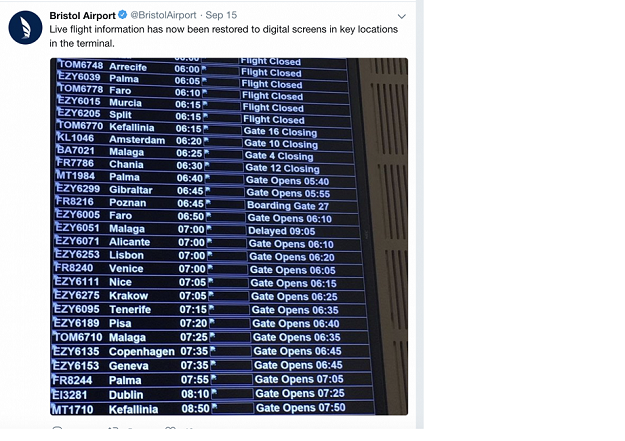Bristol Airport has blamed a ‘speculative’ cyber attack for the failure of its flight display screens over two days.
Although the airport said there was no disruption to flights, some passengers complained on social media of baggage delays and lack of communication.
Extra staff were drafted in and had to resort to writing flight times on white boards with marker pens to keep passengers informed.
Passengers were advised to arrive early and allow extra time for check-in and boarding.
An airport spokesman told the BBC that information screens were taken offline early on Friday as a precautionary measure to contain an attack similar to so-called ‘ransomware’.
This is a malicious software designed to block access to a computer system until a sum of money is paid, although the spokesman said in this case there was no ransom paid.
Spokesman James Gore earlier told the BBC: “The indications are that this was a speculative attempt rather than targeted attack on Bristol Airport.”
He insisted that at no point was the safety or security of its systems impacted or put at risk.
An airport spokesman said this morning: “Established contingency plans were implemented to keep passengers informed about flight information. Flight operations remained unaffected.
“Bristol Airport always remains vigilant against all types of hostile on-line activity. As with every event of any type we will monitor and keep under review how to avoid it re-occurring. However, it is important to recognise that security measures already in place ensured minimum disruption to passenger journeys.
“Live flight information has now been restored to digital screens in key locations throughout the terminal at Bristol Airport. Additional staff will remain in place to assist passengers while work continues to restore site-wide coverage.”
CEO Dave Lees said: “We are grateful to passengers for the patience they have shown. We would also like to thank colleagues, airlines and business partners whose hard work has enabled flights to operate to schedule during this difficult time.”












